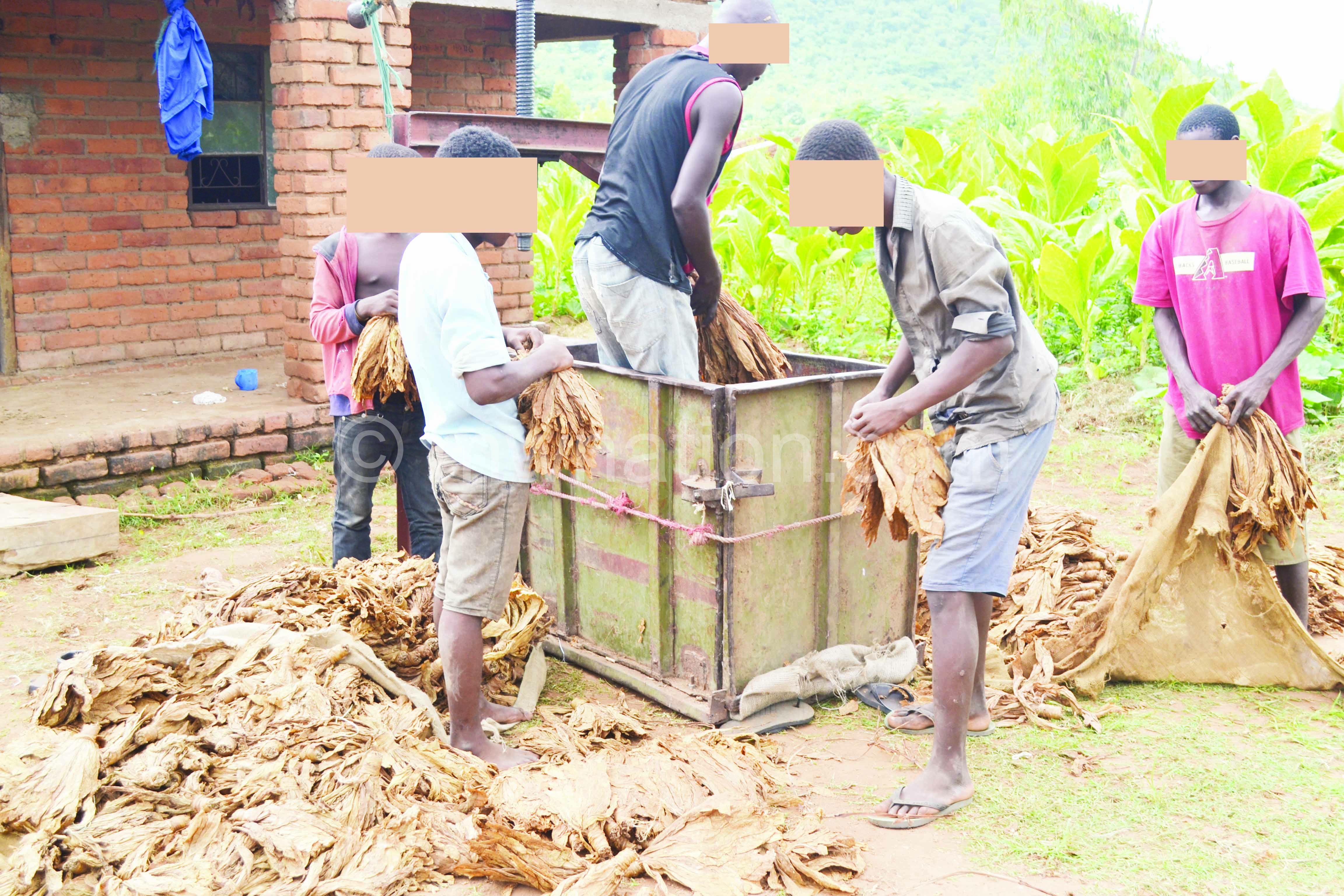Nailing child labour in tobacco estates
In Kasungu East Constituency, the definition of child labour has divided opinions and kept many children away from school.
To the community, children are part of the family and joining their parents and guardians to work in the family farms is part of their responsibility. While this belief helps to improve family income, the practice has been keeping many children out of school in the area.

For instance, despite having a capacity of over 1 000 pupils, Tchesa Primary School in the constituency has been having less than 550 pupils. The school’s headteacher Zuze Mthiko says enrolment has been low compared to the population of children within the school-going age in the area.
“Most parents rely on children for house chores and farm work. There has been a belief that some farm work can best be done by children while their [parents] attend to other duties,” he says.
While some parents are able to balance their children’s time for school and farm work, many end up keeping their children out of school the whole academic year.
Mercy Tchale, 31, of Chankusu Village in Traditional Authority (T/A) Chulu in the district agrees with the headteacher.
“Children are vital in supporting their families, especially in tobacco farms here. Since they are part of the family, their involvement is hardly termed child labour. However, this has been keeping many children out of school since tobacco growing is too involving,” she explains.
T/A Wimbe says due to poverty and other issues, some children also work in tobacco farms to raise money.
Although tobacco is known to be one of the cash crops that fetch more on the market than other crops, the process of growing to selling exposes farmers to health risks.
A 2007 study titled Health Risks in Tobacco Farm Workers indicates that health problems due to transdermal nicotine absorption are frequent among tobacco growers. The studies further say acute and chronic exposure to nicotine among women involved in the cultivation of tobacco, leads to hypertension and premature deliveries. The exposure also puts the child’s health at risk.
Over the years, there have been several interventions to protect children from child labour in tobacco estates.
In 2012, government approved Integrated Production System (IPS) policy to address this and other challenges in the tobacco industry. The aim is to end child labour and address high school dropouts and absenteeism during tobacco growing season.
The IPS is an arrangement whereby farmers sign a contract with buyers to enable them to support the farmer with the necessary inputs and technical advice to achieve maximum yield of good quality leaf. Attached to this arrangement is an agreement that the farmer would not employ children.
To complement this initiative, Alliance One Tobacco rolled out an Agriculture Labour Practices (ALP) programme with focus on child labour, work safety, fair treatment, income and compliance with the law, among others.
The company’s sustainability manager Heatherwick Khuzenje says the ALP programme has conditions and these include no use of children, lactating mothers and pregnant women in all stages of tobacco production.
Six years down the line, Khuzenje testifies that the ALP programme has proved to be a success.
“There is reduction in child labour cases in tobacco farms and the system has improved farmers’ compliance with ALP regulations,” he says.
Mthiko corroborates that both school enrolment and attendance have increased.
“I’m happy to say that from 500 enrolment in 2012, we now have over 875 learners. Although other factors such as population growth can be considered, but we have observed an ever-increasing enrolment with low absenteeism as before,” he says.
Ministry of Labour, Sports, Youth and Manpower Development public relations officer Christina Mkutumula says government is impressed with what most tobacco companies have done in helping to keep all children in school and away from tobacco production.
“There is improvement in school enrolment in tobacco growing areas and communities are now aware of the negative effects of engaging children in tobacco growing,” she says.
T/A Wimbe is particularly impressed with AOT’s initiative and says there is need to extend it to other communities.
“Many children are now going to school to the extent that classroom blocks are not even enough. We want the same story in all tobacco-growing areas in the country,” he says.
The power of ALP rests in the approach adopted. AOT established ALP committees in all communities where it sources its tobacco. The committees work with communities, traditional leaders and schools to spread messages about good agricultural labour practices.
One of the committees is Chankusu ALP and its chairperson Masiye Mwale says: “Apart from minimizing labour disputes, we are also doing more work in reforestation and most forests are now blossoming,” says Mwale.





